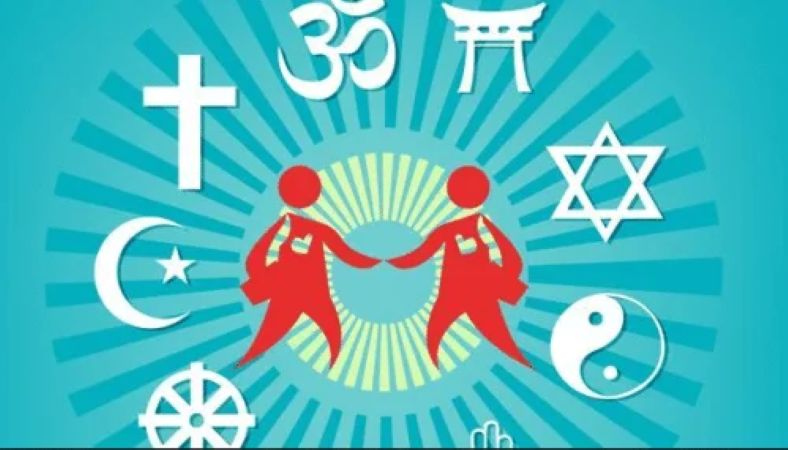LEGAL RECOGNITION OF INTERFAITH AND INTER CASTE MARRIAGES IN INDIA

Shaili Muzoomdar
In India, a man and a woman can get married either according to their personal religious rites and ceremonies or by registering a civil marriage under the Special Marriage Act, 1954. For a couple to get married under personal laws such as Hindu Marriage Act, 1955, Christian Marriage Act, 1872, Parsi Marriage And Divorce Act, 1936, or Muslim Personal Law (Shariat) Application Act, 1937, both of them need to be of the same faith, i.e., Hindus, Christians, Parsis or Muslims, as the case may be. If a man and a woman belong to different faiths, they can get married only through a civil marriage, i.e., under the Special Marriage Act, 1954. A man and a woman belonging to the same faith can also opt to have a civil marriage under the Special Marriage Act, 1954.
Inter-Caste Marriages:
If a man and woman are Hindus but belong to different castes, they can get married under the provisions of the Hindu Marriage Act, 1955 by following the ceremony for marriage as prescribed therein. The differences in their castes will not matter as long as they are both Hindus by religion. The same holds true for Muslims, Christians and Parsees. As long as a man and a woman follow Islam, Christianity or Zoroastrianism and legally belong to those faiths (whether by birth or conversion, although conversion is not recognised by Zoroastrianism ), regardless of the sub-sect, they can get married in accordance with their prescribed religious ceremonies under the Muslim Personal Law (Shariat) Application Act, 1937, Christian Marriage Act, 1872 or Parsi Marriage And Divorce Act, 1936, as the case may be. Such two people can also opt to have a civil marriage under the provisions of the Special marriage Act, 1954 instead.
Inter-Faith Marriages:
If a man and a woman belong to different faiths altogether, for eg: one being Hindu and the other being Christian or one being Muslim and the other being Parsee etc., then such two people can get married only under the provisions of the Special Marriage Act, 1954 by having a civil marriage. They can not get married under the personal laws of either of them. If they have a religious ceremony under either of their faiths or under both the faiths without having a civil marriage, such marriage is not recognised legally. Civil marriage as per the provisions of the Special Marriage Act, 1954 is mandatory in case of two people belonging to different religions/ faiths.
Matrimonial Reliefs:
If a person has married under the personal laws, he / she can seek matrimonial reliefs like divorce, annulment, restitution of conjugal rights, etc. under their personal laws (Hindu Marriage Act, 1955, Indian Divorce Act, 1869, Parsi Marriage And Divorce Act, 1936, Muslim Personal Law (Shariat) Act, 1937, Dissolution of Muslim Marriage Act, 1939, etc.). If a person has married under the Special Marriage Act, 1954, he / she can seek matrimonial reliefs like divorce, annulment, restitution of conjugal rights, etc. as provided under this Act. A person can also seek ancillary reliefs of alimony / maintenance, custody of children etc. while seeking the relief of divorce.
While inter caste or inter faith marriages may be frowned upon by some sections of the society, there is legally nothing prohibiting marriages between a man and a woman belonging to different castes or religions (provided they are of legal age to marry). In a diverse and homogenous country like India, legal provisions are made to ensure recognition of two people coming together in marriage, regardless of their religion,caste, social status, education or such other differences.
Shaili Muzoomdar is an Advocate specialising in Matrimonial Laws

